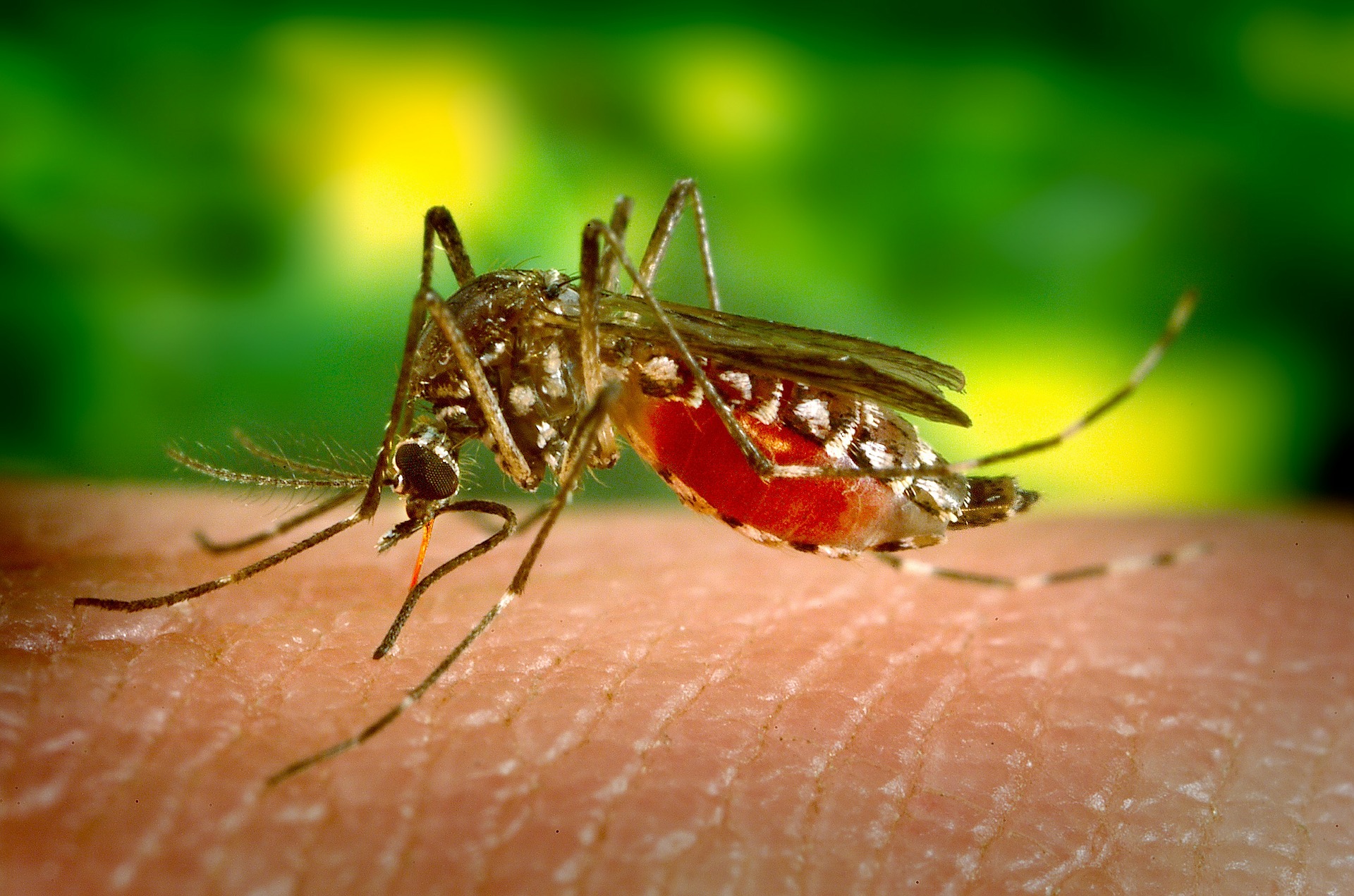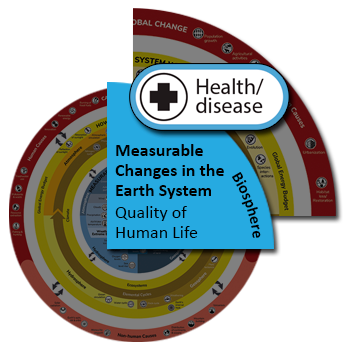To be healthy means to be free from injury or illness. For humans, and increasingly for other species, to be healthy refers to physical, mental, and emotional well-being. A disease is a condition or abnormal function that affects all or part of an organism’s health.

Mosquitos in many parts of the world carry diseases that affect human health. Credit: Pixabay
A variety of environmental changes can affect human health, including changes in the Earth’s climate and ecosystems:
- The availability of clean freshwater and nutritious food.
- Regional air quality.
- The presence of pollutants and waste.
- Interactions with other species that carry diseases or affect human health, including parasites and mosquito-borne illnesses.
- Regional temperatures (i.e., extreme heat and cold events).
Can you think of additional cause and effect relationships between human health and disease and other parts of the Earth system?
Visit the freshwater quality and availability, food availability and nutrition, air quality, and the displacement of human populations pages to learn more about how global changes affect the quality of human life.
Investigate
Learn more in these real-world examples, and challenge yourself to construct a model that explains the Earth system relationships.
- The Escape of the Pathogens: an evolutionary arms race
- Evolution of an outbreak
- Ozone depletion: Uncovering the hidden hazard of hairspray
- Antibiotic resistant bacteria at the meat counter
- Evolution explains mosquitoes’ taste for human blood
